Inspection, supervision (KTGS) and party discipline are important parts of Party building work. Continuing to promote the results achieved in the past time, from the beginning of the 13th term of the Party up to now, this work has continued to achieve many important achievements; contributing to improving the quality of Party building work; and being recognized and welcomed by public opinion.
1. Recently, news agencies and newspapers simultaneously published information about the results of the 29th Session of the Central Inspection Commission; a series of organizations and individuals violated party discipline, fell into degeneration, and were forced to review and strictly discipline.
Public opinion not only welcomed the results of the Party disciplinary action, but more importantly, acknowledged the responsibility and the way and method of operating the Party Inspection Commission and enforcing Party discipline. There is no longer "incoming thoughts, outgoing words" as in some previous times when Party discipline was not implemented fairly and impartially and there were signs of information being concealed. Now this part of the work is proactively publicized, creating a widespread influence to all people and international media.
 |
| The 29th session of the 13th Central Inspection Commission . Photo: vietnamnet.vn |
In fact, since the 13th National Party Congress, the Central Inspection Commission has held 29 meetings. The results of each meeting of the Central Inspection Commission that has been widely announced have been events that have "heated up" newspapers and cyberspace, due to the attention, response and appreciation of the whole society. After each meeting, outstanding cases that have been pending for many years, even many previous terms, related to many complex and sensitive fields... have all been carefully verified by the Central Inspection Commission, with objective and impartial conclusions, clearly identifying the person and the matter.
Perhaps that is why the results of the 29 sessions of the Central Commission for Inspection are considered vivid evidence of the Party's political determination in maintaining "self-conscious and strict" Party discipline; resolutely and persistently cleaning up the leadership and governing apparatus. This is also evidence affirming the great strides in the quality of inspection work and enforcement of Party discipline. The results achieved have themselves created a powerful influence, contributing to consolidating and cultivating the trust of cadres and the masses in the Party's leadership; in the strictness of Party discipline and the very high sense of responsibility of those doing inspection work and enforcing Party discipline.
Public opinion agrees that: Each session of the Central Inspection Commission, regardless of the level, nature, subjects, and forms of discipline, always clearly shows the reality that our Party is determined, resolute, resolute, and persistent in eliminating "bad apples that spoil the barrel", firmly holding the viewpoint of "cutting branches to save the tree" and removing boils to prevent and combat the seeds of incurable diseases, not allowing them to metastasize or spread. These are great joys that have been and are creating positive, widespread social effects.
The joy comes first of all from the public announcement of the results of party discipline, helping people to have more complete and full confidence in the leadership role of the Party, especially the efforts of the ruling Party to "cleanse itself". Because a party that knows how to "cleanse itself" is a great party, a genuine party, one that knows how to put the goal of serving the revolution and the people first and foremost. Because of that, the people are no longer fearful, do not stand aside, are not indifferent, but are determined and uphold their responsibility to participate in the fight against negativity; proactively detect cadres and party members who violate party discipline and state laws to report to the authorities, helping the Party organization and the political system promptly filter and clean up the apparatus. Along with that, public announcement of the results of party discipline is an important basis to expose and convict opposing views and opinions that sabotage the revolutionary cause; especially the accusation that our Party is afraid to admit its shortcomings; Thinking that the handling of cadres and party members is just an internal purge, or just fabricated data by the authorities to deceive the people...
More noteworthy, the public announcement of party discipline has a great educational , warning and deterrent effect on the entire team of cadres and party members in the Party. Because this part of the work has hit the weakest point in the psychology of violating cadres - that is, punishment by lowering human honor before public opinion and judging the masses. And once the "most sacred thing" can no longer be kept, money and material things are useless. That is why the team of cadres at all levels has gradually become more fully aware of the strength and value of party discipline; from "fear of discipline", intentionally dealing with regulations, it has shifted to proactively and voluntarily complying with party discipline.
2. It is an easily recognizable fact that, in some previous terms, public opinion often expressed concern about the manifestations of "hot above, cold below", "elephant head, mouse tail" or "beating the drum and abandoning the stick" in maintaining and enforcing party discipline. However, since the beginning of the 13th Party Congress term, this situation has been overcome step by step. The proof is that the Inspection Commissions at all levels, especially at the provincial and centrally-run city levels, have worked closely, impartially, and objectively, achieving many remarkable results. All levels have thoroughly overcome the situation of "bathing from the shoulders down" in enforcing party discipline; disciplined many cadres and party members holding very high positions in the Party and State. At the same time, acts such as petty corruption, manifestations of harassment of people, bad envelopes... have also been identified, fought against and handled with strict and appropriate forms of party discipline. This shows that the "discipline net" has been systematically perfected, covering all vertical sectors, reaching every corner of the entire political system and the entire social life. That party discipline thread is strengthened by the cohesion and connection at all levels, sectors and localities with the spirit of respecting the law of the State and party discipline.
According to many sociologists, the achievements of Party discipline inspection and supervision in recent times are not simply reflected in the discovery, review, and strict Party discipline handling, with the right person and the right crime; but more importantly, it affirms the effectiveness and efficiency of education, prevention, and deterrence work for cadres. Sociologists compare that: If the results of Party discipline inspection and supervision work are considered an iceberg, then the results of Party discipline inspection and supervision to enforce Party discipline are only the tip of the iceberg; while the results of Party discipline inspection and supervision to educate, rectify, and make the political apparatus cleaner and stronger are the hidden part. In reality, the hidden part of that iceberg is a much greater achievement that few people can fully imagine and perceive.
Perhaps that is why, in his closing speech at the mid-term conference of the 13th Party Central Committee, General Secretary Nguyen Phu Trong acknowledged: “The Party's inspection, supervision and discipline work continues to be innovated,... contributing to building a clean and strong Party and political system; restraining, preventing and repelling the degradation of political ideology, ethics, lifestyle, manifestations of "self-evolution" and "self-transformation" within the Party; corruption, "group interests", "term thinking"; "individualism", "power degeneration" in a large number of cadres and Party members; at the same time, improving the leadership capacity and fighting strength of the Party, strengthening solidarity and unity within the Party, consolidating people's trust, maintaining political stability, order and discipline, promoting the socio-economic development of the country”.
Indeed, in the past 2.5 years, facing the context of the country facing numerous difficulties in many aspects; especially the increasing number of violations of party discipline by cadres and party members, increasingly sophisticated tricks, unpredictable transformations, with a very high will and determination, in the spirit of "front and rear support", "one call, all responses", "unanimity from top to bottom", "throughout the whole", the Central Executive Committee, the Politburo, and the Secretariat have led, directed, deployed and implemented the work of inspection and supervision in a drastic, synchronous and effective manner in accordance with the spirit of the Resolution of the 13th National Party Congress to enforce party discipline with the consistent view that "there are no forbidden zones, no exceptions, regardless of who the person is; and not subject to pressure from any organization or individual". Based on the results of the inspection work, since the 13th Party Congress up to now, the Central Executive Committee, the Politburo, and the Secretariat have considered removing from office, suspending work, retiring, and assigning other jobs to 14 cadres under the Central management; localities have also arranged work and implemented policies for 22 cadres after being disciplined in accordance with the Party's policy on "some in, some out; some up, some down"; demonstrating a spirit of determination, exemplary, strictness, and humanity, which has the effect of educating, alerting, warning, and deterring cadres, civil servants, and party members.
Contributing to the above achievements, during the half term of the 13th Party Congress, the Central Inspection Commission has promptly advised the Central Executive Committee, the Politburo, and the Secretariat to amend, supplement, and promulgate quite synchronous regulations, rules, and guidelines on inspection work and enforcement of party discipline; proactively guided and trained inspection staff at all levels. In particular, the Central Inspection Commission and the Party's inspection sector have devoted all their efforts, overcome many pressures, and completed a large amount of work that has never been as difficult, sensitive, and complicated as in the past time.
3. Along with the achieved results, the work of Party inspection, supervision and discipline in recent times still has some shortcomings, difficulties and problems that need to be frankly identified and resolved. That is the reality that some Party committees and organizations have not fully recognized the position and importance of Party discipline; have not paid attention to and focused their leadership efforts to improve the quality of inspection and supervision in the overall solutions and forms of innovation in the Party's leadership methods in the new situation. Some Party documents and State laws are issued slowly, not synchronously, still have contradictions, and are difficult to implement in practice. Advisory and support agencies of Party committees at all levels mainly advise Party committees on economic and Party building fields; rarely advise Party committees on inspection, supervision and discipline work of the Party. The coordination between the Inspection Committee and Party building committees and relevant functional agencies in performing inspection and supervision tasks in many places is not regular and not close. The functions, tasks, and organization of the Inspection Committee and the Inspection Committee agency still have many shortcomings.
Along with that is the reality that cadres and party members do not have a firm grasp of the principles, processes, procedures, stages, and steps of the inspection work; there are still many places where there are signs of entrusting and delegating the inspection work to the Party Inspection Committees at all levels and those in charge of Party inspection work. In particular, the mechanism and conditions for conducting inspections by the Party Committees and Inspection Committees at the same level for key and leading cadres, especially the leaders, still have many difficulties and problems, including sensitive issues that need to be identified and resolved soon. In particular, the personnel of the Inspection Committees at all levels have not received attention from the leadership to ensure quality; many cadres still have the mindset of "rats running in the same nest to enter the Party inspection", because this is a field that requires specialized expertise, low income conditions, and is rarely included in the planning and development resources later on...
The 13th Party Congress documents clearly state the goal: "Improving the effectiveness and efficiency of inspection work, party discipline and strictly controlling power". Therefore, each Party Committee and Inspection Commission at all levels need to correctly and fully perceive and synchronously implement solutions to promote innovation in the Party's leadership method for inspection work as well as innovation in inspection methods in the context of one-party rule. It is necessary to consistently and thoroughly implement President Ho Chi Minh's viewpoint: If there is no inspection, it is considered as no leadership. At the same time, all levels must constantly improve the level, expertise and methods and forms of inspection so that inevitably "If there is skillful control, all shortcomings will be exposed".
In the process of operating the State Audit, all levels must promptly identify and overcome limitations and obstacles in the State Audit itself. In the immediate future, we must focus on overcoming the situation of the State Audit lacking focus and key points, still showing signs of "riding a horse to see flowers", with few surprise inspections but instead focusing on inspections according to pre-existing plans, leading to coping and achievement disease. Along with that, self-inspection, detection and handling of violations by many Party committees and organizations is still a weak link; there are still many Party organizations and Party members who have committed violations but have not been detected in time; the State Audit work of advisory and support agencies at all levels is not regular, in some places and at some times it is not substantial, the scope and target are still narrow; the effectiveness of warning and preventing violations is still limited. The enforcement of discipline in some places is not strict, there is still a phenomenon of deference and fear of collision.
In the current conditions, innovation in the Party's inspection and supervision methods requires enhancing the role and responsibility of Party committees, Party organizations, Inspection Commissions, cadres, Party members and people's supervision of inspection and supervision work and Party discipline to create real changes in awareness and action, ensuring that inspection and supervision work serves the successful implementation of the Resolution of the 13th Party Congress and resolutions of Party committees and organizations at all levels.
NGUYEN TAN TUAN
Source



![[Photo] General Secretary To Lam receives President of the Senate of the Czech Republic Milos Vystrcil](/_next/image?url=https%3A%2F%2Fvphoto.vietnam.vn%2Fthumb%2F1200x675%2Fvietnam%2Fresource%2FIMAGE%2F2025%2F11%2F21%2F1763723946294_ndo_br_1-8401-jpg.webp&w=3840&q=75)
![[Photo] President Luong Cuong receives Speaker of the Korean National Assembly Woo Won Shik](/_next/image?url=https%3A%2F%2Fvphoto.vietnam.vn%2Fthumb%2F1200x675%2Fvietnam%2Fresource%2FIMAGE%2F2025%2F11%2F21%2F1763720046458_ndo_br_1-jpg.webp&w=3840&q=75)
![[Photo] Visit Hung Yen to admire the "wooden masterpiece" pagoda in the heart of the Northern Delta](/_next/image?url=https%3A%2F%2Fvphoto.vietnam.vn%2Fthumb%2F1200x675%2Fvietnam%2Fresource%2FIMAGE%2F2025%2F11%2F21%2F1763716446000_a1-bnd-8471-1769-jpg.webp&w=3840&q=75)

![[Photo] National Assembly Chairman Tran Thanh Man holds talks with President of the Senate of the Czech Republic Milos Vystrcil](/_next/image?url=https%3A%2F%2Fvphoto.vietnam.vn%2Fthumb%2F1200x675%2Fvietnam%2Fresource%2FIMAGE%2F2025%2F11%2F21%2F1763715853195_ndo_br_bnd-6440-jpg.webp&w=3840&q=75)
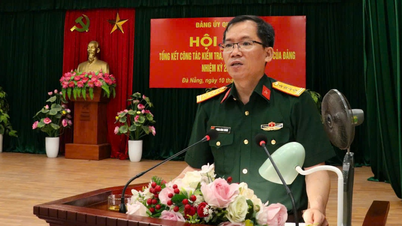
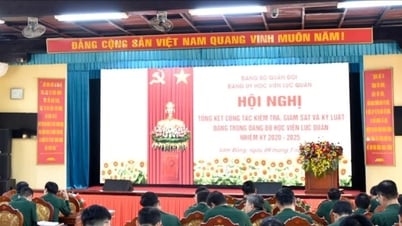


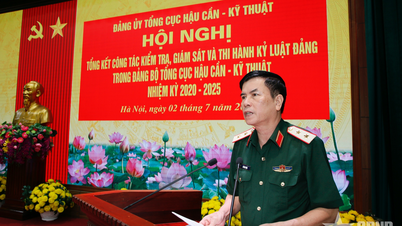
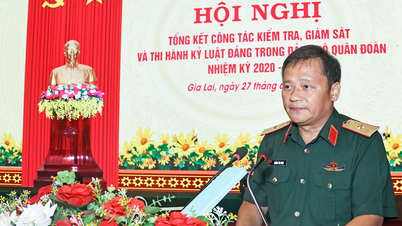
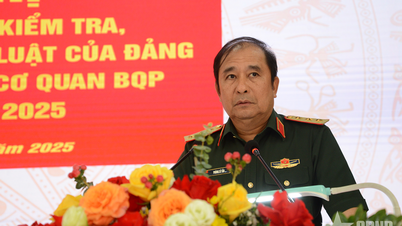
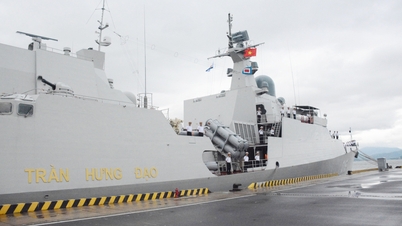

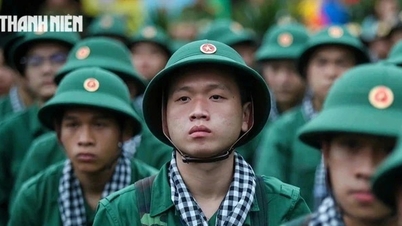
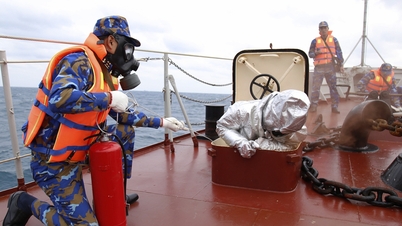
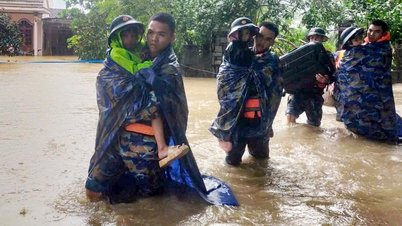







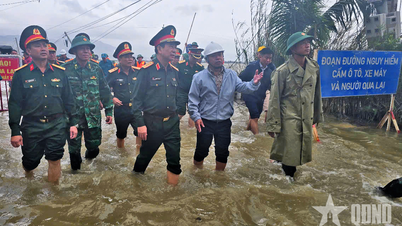
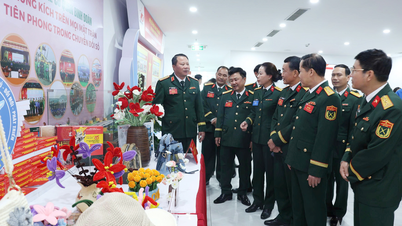
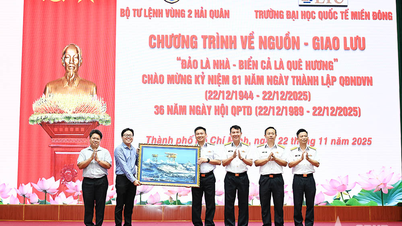
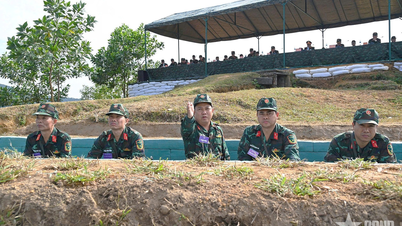
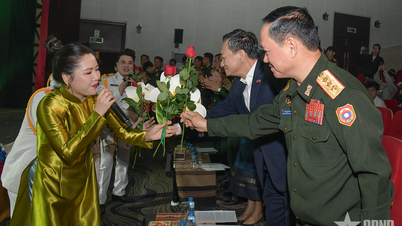
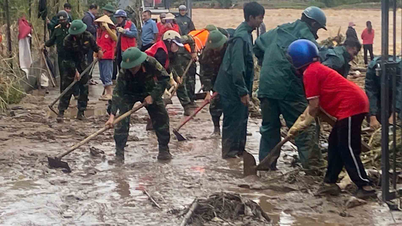




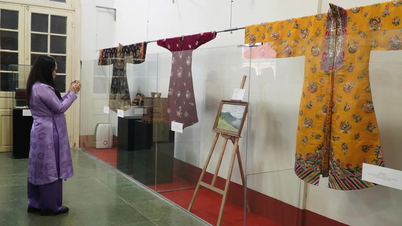

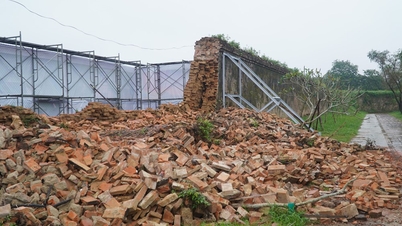

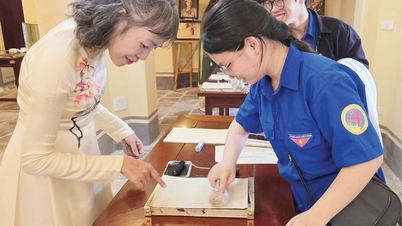





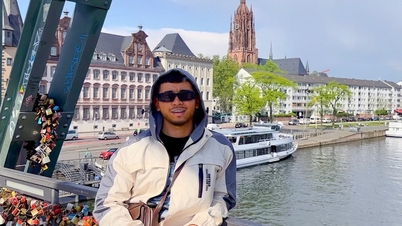

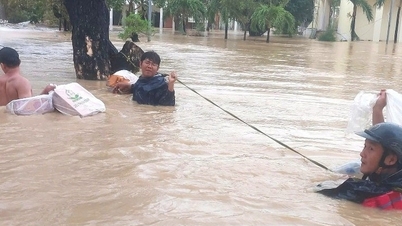
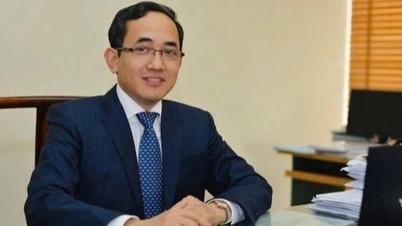

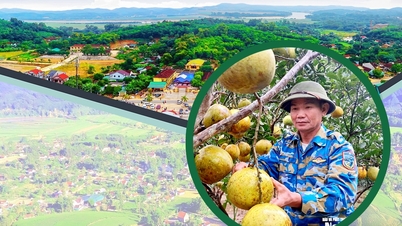

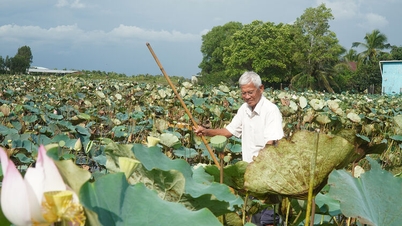















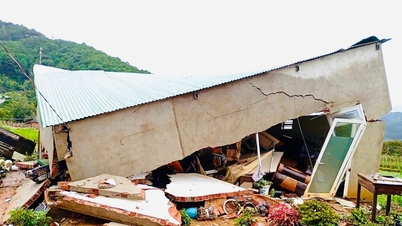


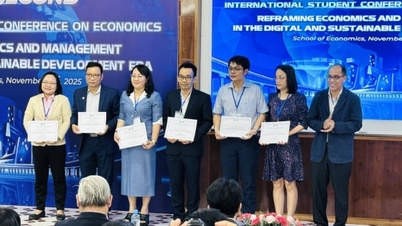

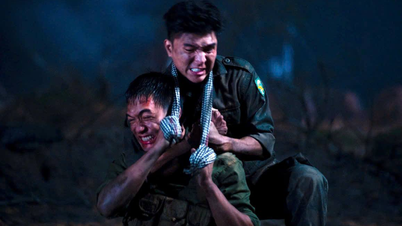
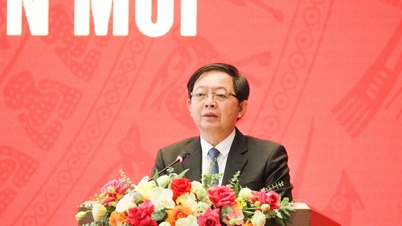

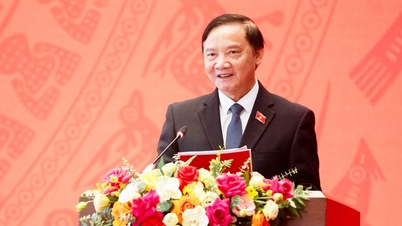
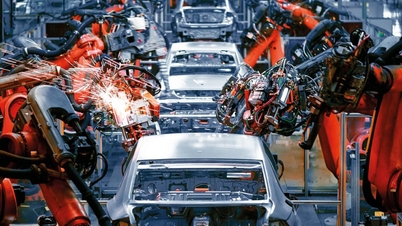

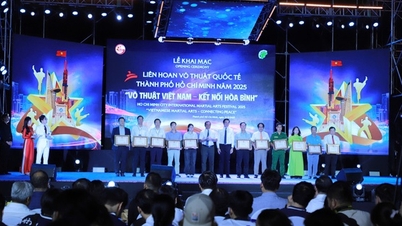

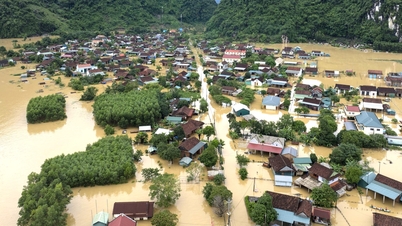


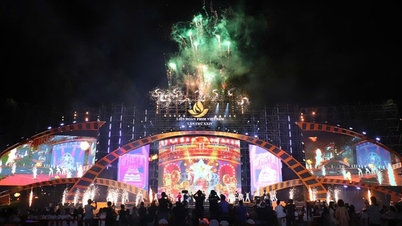
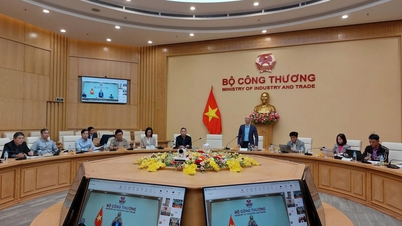


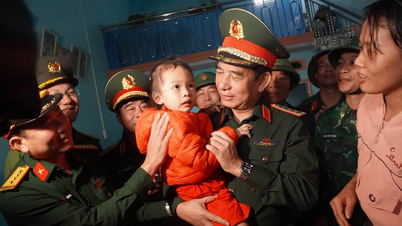
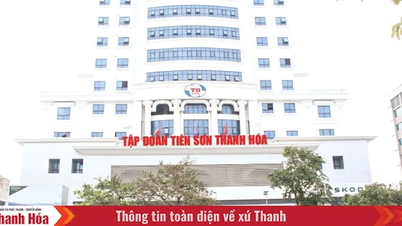

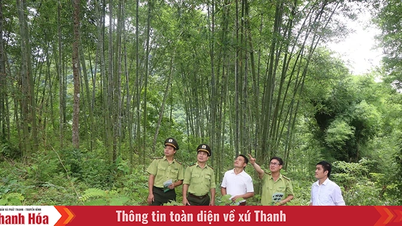


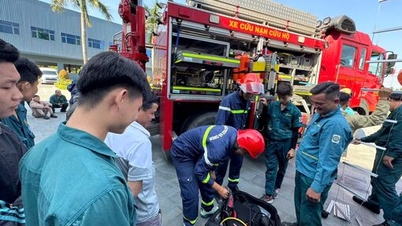














Comment (0)